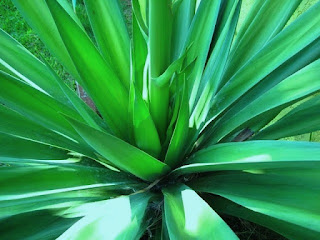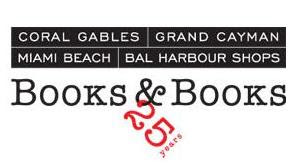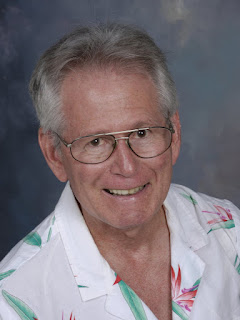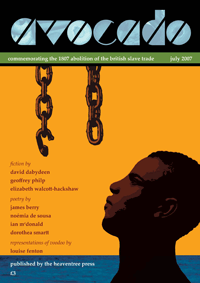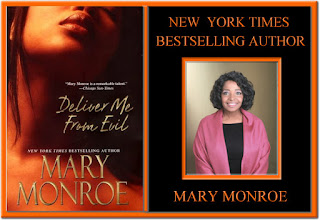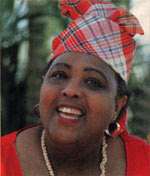 I have to admit that I was a bit scared when Jeff Lindsay began reading from his book, Dexter in the Dark, at Books and Books on September 26, 2007. In the latest installment, which has been made into a Showtime series, Dexter Morgan, a serial killer who murders other serial killers, has to "research questions that he has never dared to ask: Who is the Dark Passenger and where does he come from?" And so there I was, after watching the series and now reading the novels, in the middle of mostly white males who all looked and seemed normal (one even looked a bit like Michael C. Hall) waiting with "fear and trembling" for Lindsay to begin another episode in Dexter's life. But isn't that the appeal of Dexter and the real life tragedy of Ted Bundy, who died in a Florida electric chair--our fascination with monsters, who unlike the rest of us, have given full reign to the archetypal Destroyer in our collective unconscious while all the time appearing to be normal?
I have to admit that I was a bit scared when Jeff Lindsay began reading from his book, Dexter in the Dark, at Books and Books on September 26, 2007. In the latest installment, which has been made into a Showtime series, Dexter Morgan, a serial killer who murders other serial killers, has to "research questions that he has never dared to ask: Who is the Dark Passenger and where does he come from?" And so there I was, after watching the series and now reading the novels, in the middle of mostly white males who all looked and seemed normal (one even looked a bit like Michael C. Hall) waiting with "fear and trembling" for Lindsay to begin another episode in Dexter's life. But isn't that the appeal of Dexter and the real life tragedy of Ted Bundy, who died in a Florida electric chair--our fascination with monsters, who unlike the rest of us, have given full reign to the archetypal Destroyer in our collective unconscious while all the time appearing to be normal?I listened, shuddered, and sometimes laughed along with other members of the audience at the macabre humor in the fifteenth chapter where Dexter is going through a phase of teenage rebellion. Dexter decides he is not to follow the advice of his father, Harry, a police officer and the only one who can teach him "how to act human, how to be certain and careful, how to lean up afterward" (113). In what is to become trademark behavior in his later years, Dexter chooses one of the bullies at Ponce de Leon Junior High as his victim. Unfortunately, he gets caught, scalpel in hand, by the assistant principal. And in typical fashion, Harry rescues Dexter. However, Harry doesn’t scold Dexter. Instead Harry takes Dexter to met Carl, a serial killer whom he has just arrested.
At first when Carl meets Dexter, he misinterprets the reason why Harry has brought Dexter to the jail. But then, in one of the more chilling passages, Carl realizes why Harry has staged the encounter:
"He got caught," Harry said to me, "because he didn't know what he was doing. And now he will go to the electric chair. Because he didn't know what the police were doing. Because," Harry said this without raising his voice at all and without blinking, "he had no training."
The scene ends with Harry and Dexter leaving the jail and Dexter acknowledging the "end of my youthful rebellion."
After the applause subsided, Lindsay during the Q&A gave details about his early life and admitted that in every profession he had tried--actor, stand-up comedian, and a member of Dorx!, a rock and roll band--he always ended up writing jokes for other comedians, writing plays for the ensemble, or writing song for the band and he finally broke down in exasperation, "Okay, I get it! I'm a writer."
"Do you have any advice for young, aspiring writers?" asked one of the students who had listened to Lindsay's tales of balancing part-time teaching at a community college and being a fulltime father and husband. "Luck is a big part of it," he said, "but you have to be good long enough to get lucky."
Lindsay finished the Q&A after a series of questions about the craft of writing and the amount of time he spent writing Dexter in the Dark: "I never had a book fight back so hard." Of course, there were many questions about his inspiration and show he came up with a character like Dexter Morgan, who has been compared to Camus' Mersault, and Lindsay confessed that the idea came first and then he had to do the research. Unsatisfied, some members showed a deep desire to know how Lindsay came up with the plot and the inner workings of Dexter, whom Lindsay calls "an errant, little monster." They probed and they probed. Yet what was missing from the discussion was Lindsay's ability to hold the interest of a largely liberal audience, as was evident from many of their questions, with a protagonist, who holds deeply conservative ideas about subjects such as authority and rebellion.
As I left the reading, I felt glad to have met a writer, who after facing many adversities had created a character who had gained popularity in America, and especially in affluent Coral Gables. But it also frightened me. So, as I walked back to my car in that mostly white neighborhood, you know I was looking over my shoulder.
For photos of the event, please follow this link: Dexter in the Dark @ Books and Books.
***
Next week I'm beginning a series called, "Conversations with…" and it will feature artists, writers, book lovers, and interesting people in and from South Florida and the Caribbean.
I'm beginning the series with Tobias Buckell on Monday and Richard Grayson on Wednesday.
***



